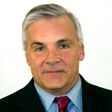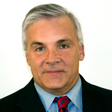Fissures at the Fed
Policymakers are at odds over inflation. It's calm now, but how long can that last?

Profit and prosper with the best of Kiplinger's advice on investing, taxes, retirement, personal finance and much more. Delivered daily. Enter your email in the box and click Sign Me Up.
You are now subscribed
Your newsletter sign-up was successful
Want to add more newsletters?
Despite the collegial facade, a schism is widening at the Federal Reserve. Lined up on one side: the hawks -- policymakers impatient with the Fed’s low interest rates and, at a minimum, eager to signal a change in course. On the other: the doves, worried that the economy hasn’t quite found its legs.
After 17 months, the Fed’s near-zero interest rate policy is clearly making some members uneasy. Most prominent among the hawks is Thomas Hoenig, president of the Federal Reserve Bank of Kansas City. As a voting member of the Federal Open Market Committee, Hoenig first dissented with the Fed’s declaration that the bellwether federal funds rate would remain “exceptionally low” for an “extended period” in January, a position he maintained at the March and April meetings. In a more recent speech, he warned about “the buildup of financial imbalances creating long-run risks” and noted that “operators and investors in the Midwest are buying up farmland and bidding up the price.”
In direct challenge to previous statements by Fed Chairman Ben Bernanke, Hoenig also conceded that the previous episode of easy money played a role in inflating the housing bubble: “Exceptionally low rates, while perhaps not the single cause, played an important role in creating the conditions leading to our recent crisis.” Given the usual standards of harmony at the Fed, the public dissent is noteworthy.
From just $107.88 $24.99 for Kiplinger Personal Finance
Become a smarter, better informed investor. Subscribe from just $107.88 $24.99, plus get up to 4 Special Issues

Sign up for Kiplinger’s Free Newsletters
Profit and prosper with the best of expert advice on investing, taxes, retirement, personal finance and more - straight to your e-mail.
Profit and prosper with the best of expert advice - straight to your e-mail.
And Hoenig isn’t alone. Other card-carrying hawks include President of the St. Louis Federal Reserve Bank James Bullard, who is also a voting member of the FOMC, and the presidents of three other regional Fed banks. Although Jeffrey Lacker of the Richmond bank, Charles Plosser of Philadelphia and Richard Fisher of the Dallas bank do not now have FOMC votes, which rotate among regional bank presidents each year, they all weigh in at meetings.
Joining Bernanke in the dove camp is Vice Chairman Donald Kohn and regional presidents Eric Rosengren (Boston) and Janet Yellen (San Francisco). As a group, they don’t dispute the hawks’ angst; they simply subordinate those worries to their own about the economic recovery. For example, Yellen (recently nominated to succeed Kohn as vice chairman after his retirement this June) places the emphasis on downside risks: “Even as we applaud the economic turnaround, it’s important not to lose sight of just how fragile this recovery is and how far we yet have to go before things return to normal.” As for the risk of fueling new bubbles, she notes, “Currently, simple financial market indicators provide no real sign that significant excesses or imbalances have developed in the United States.”
Through at least the end of the year, the doves will come out on top, with the record low federal funds rate persisting into 2011. First of all, Bernanke and his like-minded colleagues outnumber those who are more worried about inflation. Of the 10 current voting members on the FOMC (with two of the usual 12 seats vacant), doves Bernanke, Kohn and Rosengren outnumber the hawks 3-to-2. The five remaining members don’t come down squarely on one side or the other, usually concurring with the majority.
Yellen’s replacement of Kohn at midyear -- which is a very safe bet -- doesn’t affect the hawk/dove balance, but newly nominated governors certainly will. The administration’s nominees Peter Diamond, a scholar with little monetary policy background, and Sarah Bloom Raskin, a Maryland bank regulator, both harbor activist biases. In the current environment, that means prioritizing a return to low unemployment over a return to more-normal interest rates.
There’s also the matter of politics. Although the Federal Reserve is among the most independent central banks in the world, it isn’t immune from politics. And as financial reform measures float through Congress, each reshaping the Fed’s role to some degree, there’s an incentive not to be too hasty with the higher interest rates that legislators reflexively dislike -- especially in an election year.
Finally, there’s this: Hawks’ arguments about inflation are theoretical, emphasizing abstract potential risks down the road, while doves focus on the absence of any evident imbalances today. Despite the hawks’ legitimate points, their concerns about the future are trumped by worry about the here and now.
Profit and prosper with the best of Kiplinger's advice on investing, taxes, retirement, personal finance and much more. Delivered daily. Enter your email in the box and click Sign Me Up.

-
 Americans, Even With Higher Incomes, Are Feeling the Squeeze
Americans, Even With Higher Incomes, Are Feeling the SqueezeA 50-year mortgage probably isn’t the answer, but there are other ways to alleviate the continuing sting of high prices
-
 Hiding the Truth From Your Financial Adviser Can Cost You
Hiding the Truth From Your Financial Adviser Can Cost YouHiding assets or debt from a financial adviser damages the relationship as well as your finances. If you're not being fully transparent, it's time to ask why.
-
 How to Manage a Disagreement With Your Financial Adviser
How to Manage a Disagreement With Your Financial AdviserKnowing how to deal with a disagreement can improve both your finances and your relationship with your planner.
-
 Farmers Brace for Another Rough Year
Farmers Brace for Another Rough YearThe Kiplinger Letter The agriculture sector has been plagued by low commodity prices and is facing an uncertain trade outlook.
-
 Trump Reshapes Foreign Policy
Trump Reshapes Foreign PolicyThe Kiplinger Letter The President starts the new year by putting allies and adversaries on notice.
-
 Congress Set for Busy Winter
Congress Set for Busy WinterThe Kiplinger Letter The Letter editors review the bills Congress will decide on this year. The government funding bill is paramount, but other issues vie for lawmakers’ attention.
-
 The Kiplinger Letter's 10 Forecasts for 2026
The Kiplinger Letter's 10 Forecasts for 2026The Kiplinger Letter Here are some of the biggest events and trends in economics, politics and tech that will shape the new year.
-
 What to Expect from the Global Economy in 2026
What to Expect from the Global Economy in 2026The Kiplinger Letter Economic growth across the globe will be highly uneven, with some major economies accelerating while others hit the brakes.
-
 Amid Mounting Uncertainty: Five Forecasts About AI
Amid Mounting Uncertainty: Five Forecasts About AIThe Kiplinger Letter With the risk of overspending on AI data centers hotly debated, here are some forecasts about AI that we can make with some confidence.
-
 Worried About an AI Bubble? Here’s What You Need to Know
Worried About an AI Bubble? Here’s What You Need to KnowThe Kiplinger Letter Though AI is a transformative technology, it’s worth paying attention to the rising economic and financial risks. Here’s some guidance to navigate AI’s future.
-
 Will AI Videos Disrupt Social Media?
Will AI Videos Disrupt Social Media?The Kiplinger Letter With the introduction of OpenAI’s new AI social media app, Sora, the internet is about to be flooded with startling AI-generated videos.